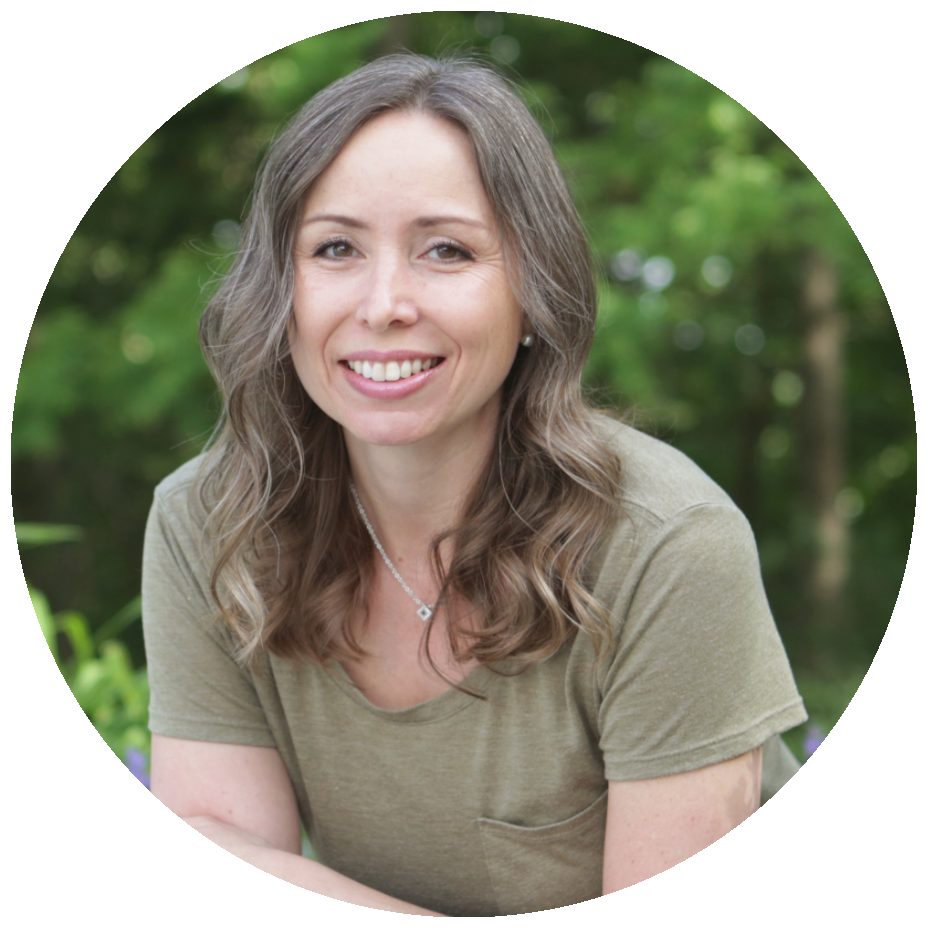.jpg) I have the pleasure this school year of teaching high school psychology at our homeschool co-op. It has truly been a joy – not only because my undergraduate degree is in psychology and I find the material fascinating, but also because I simply love working with this age group! It’s been super rewarding to teach it from a Biblical perspective (my college classes were definitely not that) and to also weave in wholistic wellness principles that support overall health. When we studied sleep and dreams, I took the opportunity to present some sleep trivia, as well as some tips to incorporate good sleep hygiene habits since sleep plays such a critical role in overall wellness.
I have the pleasure this school year of teaching high school psychology at our homeschool co-op. It has truly been a joy – not only because my undergraduate degree is in psychology and I find the material fascinating, but also because I simply love working with this age group! It’s been super rewarding to teach it from a Biblical perspective (my college classes were definitely not that) and to also weave in wholistic wellness principles that support overall health. When we studied sleep and dreams, I took the opportunity to present some sleep trivia, as well as some tips to incorporate good sleep hygiene habits since sleep plays such a critical role in overall wellness.
Although I won’t share all of the sleep statistics I presented in class, I do want to share a few of the most important ways that sleep deprivation inhibits our bodies to function properly, simply to demonstrate just how important sleep truly is. I also touched on this topic several years ago HERE, if you are interested. Some bodily functions that inadequate sleep make much more difficult are:
- Sugar metabolization
- Maintaining proper testosterone levels
- Creating memories
- Producing anticancer immune-fighting cells/natural killer cells (side note – check out the correlation with melatonin and cancer)
- Regulating mood, anxiety, and even feelings of depression
- General mental and physiological capacity, including reaction time and decision-making skills
- Fighting inflammation
- Regulating blood pressure and heart health
- Weight loss
- Clearing beta amyloid (associated with Alzheimer’s Disease)
- Balancing hormones
- Regulating the immune system and fighting off sickness
If I could encourage people to pursue just one wellness change, it would for sure be prioritizing restorative sleep. It is absolutely essential for every bodily function and not getting enough of it really impairs our body’s ability to operate optimally, regenerate cells, and heal from all sorts of issues (including injuries). In general, adults need 7-8 hours of sleep, adolescents need approximately 10 hours of sleep, and children need 12-14 hours.
What is “sleep hygiene?” According to the Cleveland Clinic, sleep hygiene “refers to the healthy habits, behaviors, and environmental factors that you can take charge of to help you get a good night’s sleep … it is essentially the prep work we can do to protect our sleep and ensure we sleep well.” Basically, sleep hygiene habits are what we do before bedtime to set ourselves up for successful restorative sleep. Fortunately, most sleep hygiene habits are free!
Here are my favorite sleep hygiene habits:
Tip #1: Get more sunlight during the day, especially from 6:00am – 8:30am, to help set your circadian rhythm. God designed us to be in tune with nature, which includes setting our routines around the sun’s schedule. Morning sun is best right when you wake up, but lunchtime is good too.
Tip #2: Turn off all screens 90 minutes before bedtime. Read real books, talk to people, play board games, turn off notifications, and use blue light blockers when needed.
Tip #3: Stop drinking coffee and caffeinated beverages at least six hours before bedtime. And for adults, skip alcoholic beverages in the evening before bed – it raises your cortisol level and your heart rate. Even though it may “feel” like a drink can help you settle to sleep faster, your body actually has a much harder time recovering and getting truly restorative sleep.
Tip #4: Stop eating at least three hours before bedtime. If our body has to expend energy for digestion while we’re sleeping, it has a harder time doing the cleanup/waste removal activities that are required for proper bodily function.
Tip #5: If you are able, keep your bedroom cool. 68 degrees or cooler is optimal for good sleep. Taking a warm bath 90-120 minutes before bed can help your body temperature drop normally after the bath raises it. Other ideas to consider are using a cooling mattress pad and wearing socks to keep your feet warm in a colder room.
Tip #6: Aim to get to bed a few hours after sundown, preferably shooting for 10:00pm or earlier. Again, God designed us perfectly to be in tune with nature! The most restorative sleep happens from 10:00pm – 2:00am and most deep sleep (which is needed for physical and mental recovery, strengthening muscles, bones, & tissues, as well as immune function) typically happens in the first half of the night.
Tip #7: Blackout your room to support melatonin production. Yet again, we are designed to be in tune with nature (notice the pattern?). Red light for alarm clocks is best, but consider an alarm clock that has a feature to completely turn off the display (this also makes it harder for you to look at the clock if you wake in the middle of the night).
Tip #8: Move your body! Morning movement (physical activity) is best to support an optimal cortisol level and body temperature. Find something you enjoy!
Tip #9: Go to bed and wake up within the same 30-minute window daily. We are creatures of habit and thrive on consistency.
Tip #10: Practice a few minutes of deep breathing before going to bed to promote relaxation and lower your heart rate. There are lots of ways to do this, but it can be super simple. Make sure your stomach moves in and out with your breathing, and breath out longer than you breath in.
Tip #11: Get grounded! Walking barefoot outside during the day, even just for a few minutes, has been shown to set the biological clock, regulate circadian rhythms, and balance cortisol levels.
Tip #12: Charge electronics outside the bedroom. They all emit EMFs that can interrupt restorative sleep.
Tip #13: Clean the air in your room by adding house plants! Good ones to consider are Pothos, Snake, Spider, and Aloe Vera. If you have the budget, invest in an AirDoctor.
Tip #14: Consider supplementing with magnesium to support sleep. It’s needed for over 300 enzyme reactions in the body, in addition to making energy, stabilizing membranes, and helping muscles relax. One of the major symptoms of magnesium deficiency is insomnia and estimates suggest that 80% of Americans are deficient. I personally notice a huge difference in my sleep quality when I supplement right before bed.
Tip #15: Consider enjoying herbal teas (lavender, lemon balm, chamomile, passionflower, valerian) that promote sleep before bedtime, and/or consider diffusing sleep-supporting essential oils (lavender, bergamot, cedarwood, vetiver, ylang ylang, clary sage, chamomile) in the bedroom while you sleep.
I’d love to hear about your favorite way to support sleep! Please comment! Ultimately, wholistically supporting restorative sleep is relatively simple and super important – it just takes a bit of intentionality and planning. Sleep tight!
![]()
Resources
100+ sleep statistics. Sleep Foundation. (2023, September 26). https:// www.sleepfoundation.org/how-sleep-works/sleep-facts-statistics
Cleveland Clinic. (2024, September 9). Sleep hygiene tips for a better night’s rest. https://health.clevelandclinic.org/sleep-hygiene
Earthing: Health implications of reconnecting the human … (n.d.). https://onlinelibrary.wiley.com/doi/10.1155/2012/291541
TED-Ed. (n.d.). What would happen if you didn’t sleep? – claudia aguirre. TED. https://ed.ted.com/lessons/what-would-happen-if-you-didn-t-sleep-claudia-aguirre
Stevenson, S., & Gottfried, S. (2016). Sleep smarter. Hay House Uk Ltd.
Walker, M. P. (2018). Why we sleep: Unlocking the power of sleep and dreams. Scribner, an imprint of Simon & Schuster, Inc.






